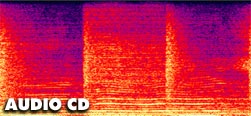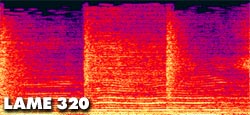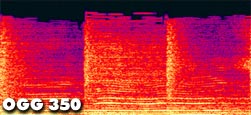46
Graphics / Render Targets
« on: June 15, 2010, 05:14:39 am »Quote from: "NGen"
Alright, when can we expect SFML 2? Not any time soon, I'm guessing? Would it be possible to get at least a basic overview of how it would work? What we're currently using does something along the lines of:Code: [Select]// ( width, height ) rounded up to nearest power of 2
HTARGET hTarget = Target_Create ( 800, 600 );
// Begin drawing to the target
Gfx_BeginScene ( hTarget );
// Draw some stuff onto the target
Gfx_EndScene ( );
// Begin drawing to the window buffer
Gfx_BeginScene ( );
// SomeQuad would give the vertices for rendering the target, the second
// parameter requires a texture, so we get the texture from the target
Gfx_RenderQuad ( &SomeQuad, Target_GetTexture ( hTarget ) );
Gfx_EndScene ( );
I really just need to know how we could make a switch as painless as possible. We're going to be building a high level abstraction layer on top of whatever library we use to allow us to switch from one library to another fairly easily. So I want to create a part of that layer for rendering targets that would give us an interface that would be able to work with both the rendering targets that our library gives us, as well as the render-images that SFML 2 would give us.
I know it supports scaling/drawing well because I used it myself. I assume you need it for transforming a texture fast? If so you would transform the sprite before drawing it to the RenderImage.
Here's the source example:
Code: [Select]
/// Usage example:
///
/// \code
/// // First of all: make sure that rendering to image is supported
/// if (!sf::RenderImage::IsAvailable())
/// return -1;
///
/// // Create a new render-window
/// sf::RenderWindow window(sf::VideoMode(800, 600), "SFML window");
///
/// // Create a new render-image
/// sf::RenderImage image;
/// if (!image.Create(500, 500))
/// return -1
///
/// // The main loop
/// while (window.IsOpened())
/// {
/// // Event processing
/// // ...
///
/// // Clear the whole image with red color
/// image.Clear(sf::Color::Red);
///
/// // Draw stuff to the image
/// image.Draw(sprite); // sprite is a sf::Sprite
/// image.Draw(shape); // shape is a sf::Shape
/// image.Draw(text); // text is a sf::Text
///
/// // We're done drawing to the image
/// image.Display();
///
/// // Now we start rendering to the window, clear it first
/// window.Clear();
///
/// // Draw the image
/// sf::Sprite sprite(image.GetImage());
/// window.Draw(sprite);
///
/// // End the current frame and display its contents on screen
/// window.Display();
/// }
/// \endcode
///
/// Like sf::RenderWindow, sf::RenderImage is still able to render direct
/// OpenGL stuff. It is even possible to mix together OpenGL calls
/// and regular SFML drawing commands. If you need a depth buffer for
/// 3D rendering, don't forget to request it when calling RenderImage::Create.
///
/// \see sf::RenderTarget, sf::RenderWindow, sf::View
///
////////////////////////////////////////////////////////////



